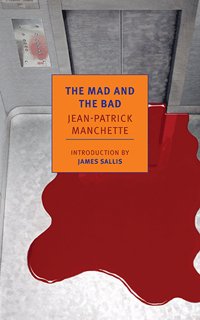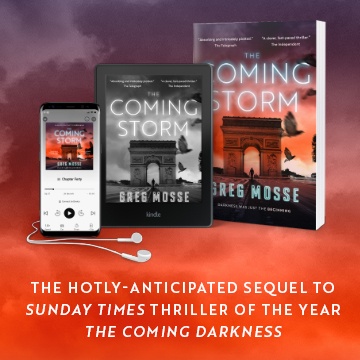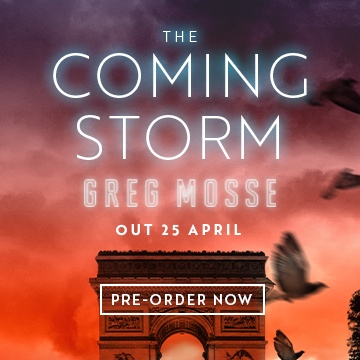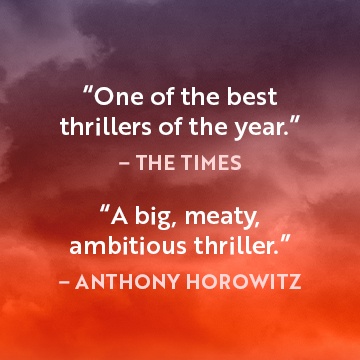 Written by Jean-Patrick Manchette, translated by Donald Nicholson-Smith — Last month we celebrated Bastille Day with a look at the best French crime fiction. My two suggestions for that list were written by Manchette. The quality of this author hasn’t escaped the eye of publishers New York Review Books, either. The company has just published a new translation of 1972 novel The Mad and The Bad, with an introduction from the American author James Sallis, whose credits include Drive, Driven and The Killer is Dying.
Written by Jean-Patrick Manchette, translated by Donald Nicholson-Smith — Last month we celebrated Bastille Day with a look at the best French crime fiction. My two suggestions for that list were written by Manchette. The quality of this author hasn’t escaped the eye of publishers New York Review Books, either. The company has just published a new translation of 1972 novel The Mad and The Bad, with an introduction from the American author James Sallis, whose credits include Drive, Driven and The Killer is Dying.
The Mad and The Bad – originally published as Ô dingos, Ô châteaux! and winner of the following year’s French Grand Prix for crime fiction – begins with a rich businessman called Gerard Harthog arriving at a countryside asylum to take a young woman, Julie Ballanger, as his ward. Whilst there he treats the staff with contempt and is dismissive of the doctor trying to explain the girl’s problems. He takes her to Paris where she will be a nanny to his nephew, Peter. As the pair arrive at his address, Harthog is threatened and insulted by a man – an ex-colleague called Fuentes – waiting at his gate. Later his chauffeur reveals that Harthog was a failing architect before his brother died, whose wealth is all from his inheritance. His philanthropic acts are merely a salve for guilt he fells over this.
The next day, as Julie is taking Peter for a walk in the local park, the pair are kidnapped by a trio of French thugs. They’re taken to a countryside chalet where they rendezvous with their boss, a dyspeptic English hitman called Thompson. He forces Julie to write a ransom note, making it appear as if she is responsible for Peter’s disappearance and demanding a million francs for his return. Through the incompetence of the French gangsters Julie and Peter are able to escape and the story follows their flight through the French countryside pursued by an increasingly desperate Thompson and his gang, right up until a bloody climax in an isolated farmhouse.
This is a relatively short book which you can easily plough through in one sitting. The prose is deceptively simple and there is plenty of action. Like other Manchette titles, what makes this book stand out is the political theme behind it, and most impressively, the way he uses humour to convey these ideas. The politics is left wing, and would be considered markedly so in today’s world. Manchette attempts to reveal what he sees as the failures and hypocrisies of the capitalist system. Molotov cocktails burning down the cosmetics section of a fancy department store, a professional killer increasingly incapacitated by stomach ulcers induced by the stress of his job, and a wealthy industrialist whose one proud achievement turns out to be a lie – all are examples of the almost absurdist humour that Manchette uses to makes his points.
It could be argued that his ideas are outdated, that their time has come and gone. However, perhaps they are more relevant than ever in an age of globalisation, living wages, zero hour contracts and the Occupy movement. A fantastic introduction by James Sallis, which serves as an overview of Manchette’s career and the influences upon his work, is just the cherry on the top.
New York Review of Books
Print
£6.15
CFL Rating: 5 Stars









Wow, I read a brief review of Manchette that made me add him to my to-read list, but now I see I need to move him higher. Great review.